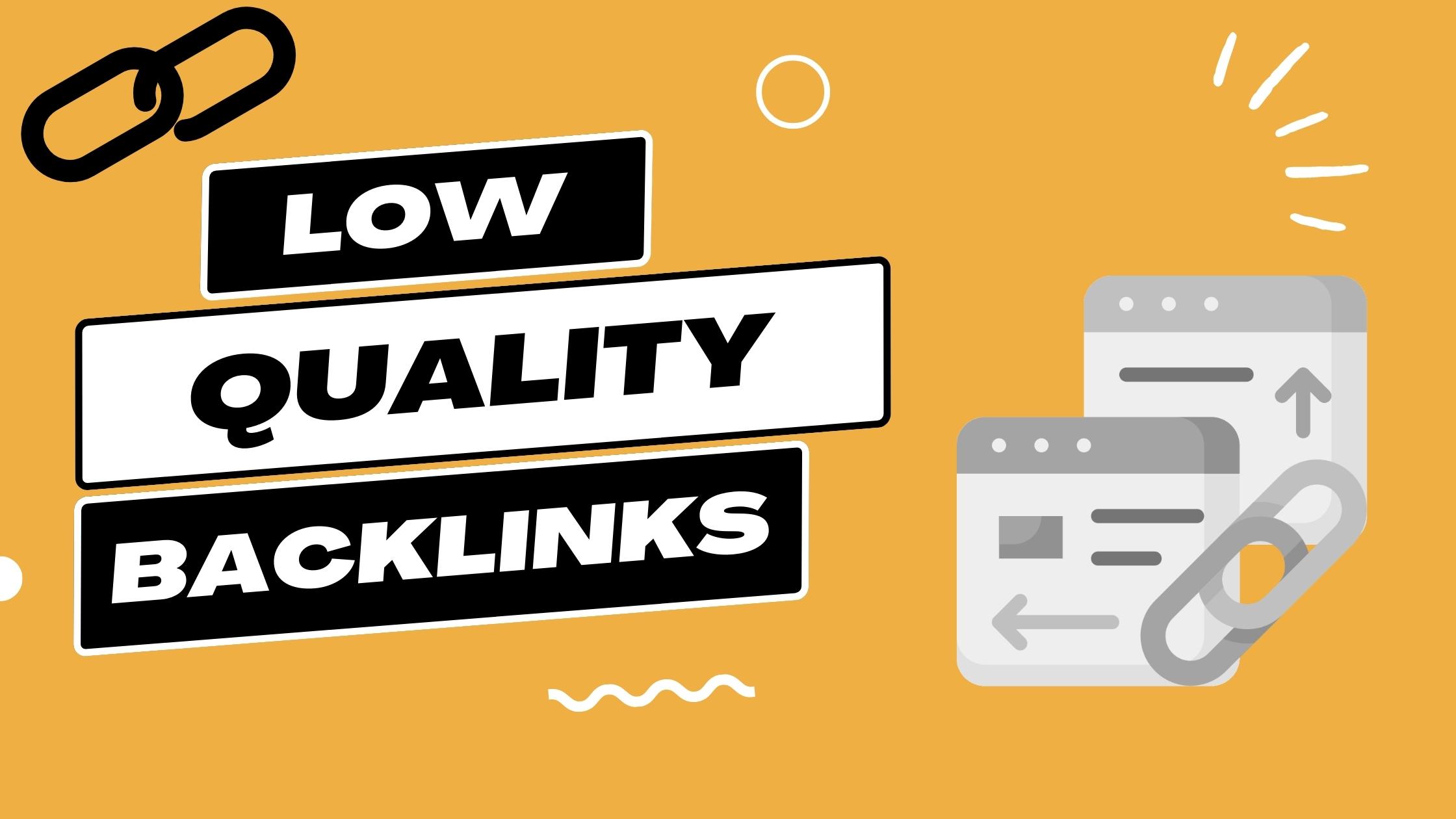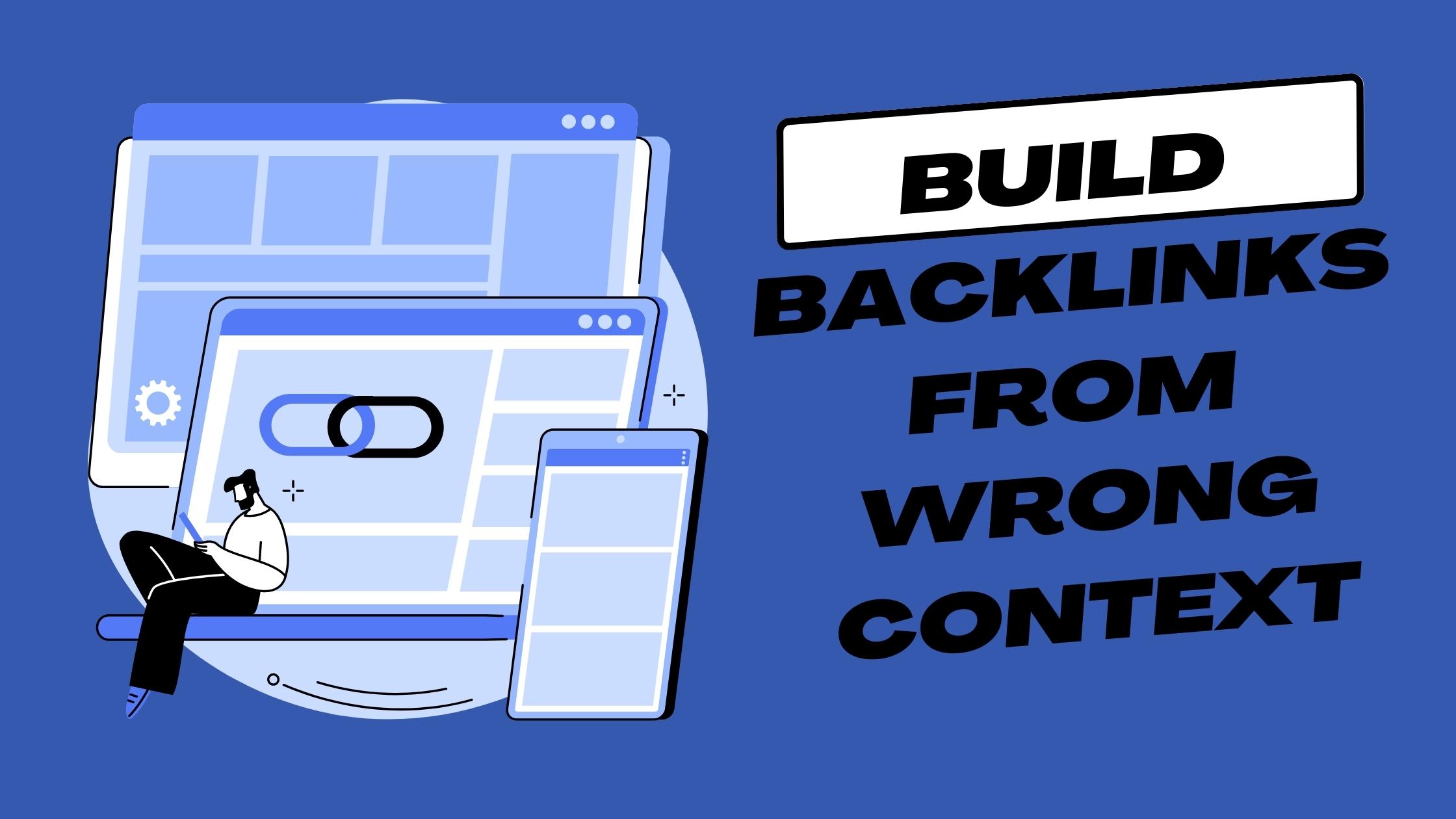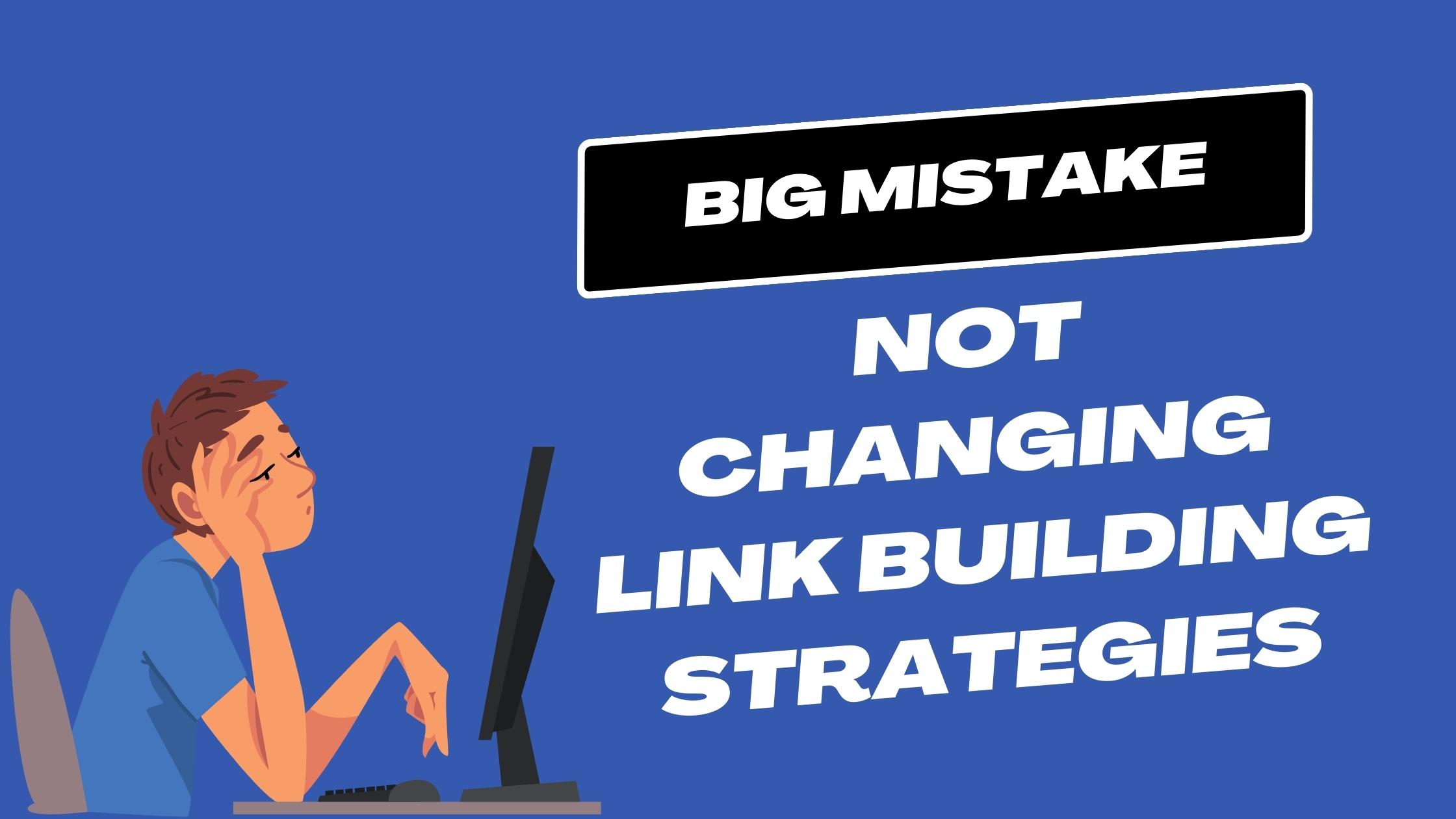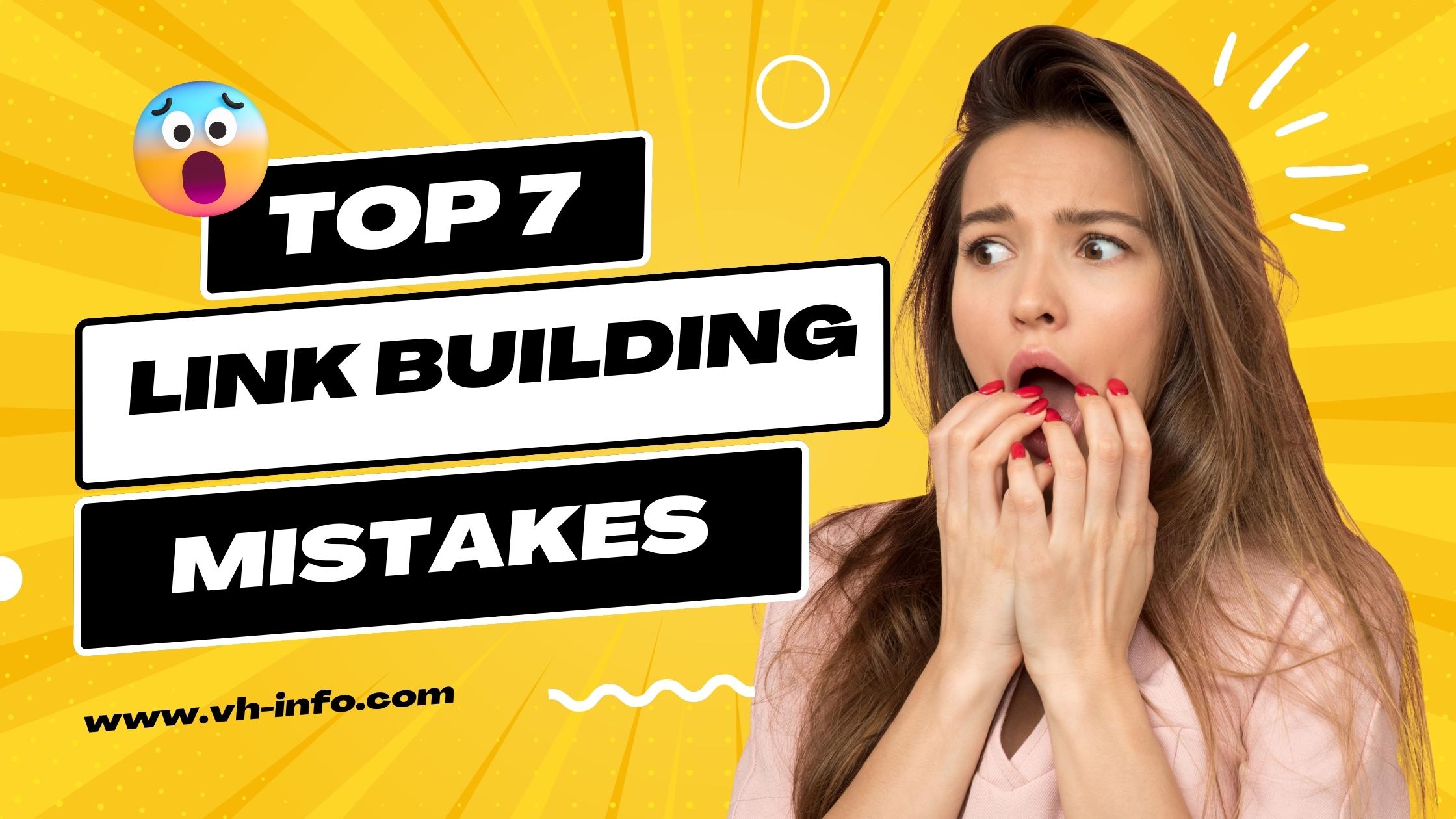Majority of website owners out there, are you making an effort to improve the authority, ranks, and organic traffic of your website?
Every website owner and marketer has the same objective, but using search engines like Google can help them achieve it. The truth is that a brand must please search bots until it is so well-positioned that people go and search for the brand name or specific products offered by the brand (like Nike or Adidas). As the proverb goes, “A successful King is often supported by a wise and powerful Queen.” We are aware that content is king for Google. And if the content is the king of SEO, the backlinks are the queen that help it to rank higher on Google. such efforts and offers advice on how to avoid typical errors that could reduce their efficacy. However, Google also operates under the adage that “Caesar’s wife must be above suspicion,” meaning that constructing bad links can result in disarray, fines, and even deindexing. So, it is crucial to avoid link building mistakes that could lead to penalties or reduced efficacy. As website owners and marketers continue to make such errors, I feel it’s essential to shed light on these common mistakes and offer advice on how to improve their link building strategies.
So let’s begin with link building errors!
Build backlinks from low authority website

Link building can be an attractive Link building strategy for those who are looking to build links quickly and easily. It’s best to avoid this practice as it could have negative effects on your website’s overall online presence and SEO. Here are some of the reasons why it is not recommended to build links from websites with low authority:
- Negative SEO Impact: Search engines, particularly Google, take into account the quality of links when determining the authority and ranking of a website. Your site’s ranking can drop if you have many links coming from low-authority websites.
- Lack Of Relevance : Low authority sites often have content unrelated to the industry or niche you are in. Links from irrelevant sites may not be of any use to the visitors or search engine crawlers on your website, and could harm your user experience.
- Penalties: Building backlinks from spammy or low-quality websites may put your website in danger of algorithmic or manual demotion. Google’s algorithms detect and penalize any link schemes that include low-quality sites.
- Limited traffic and conversions Links from websites with low authority are unlikely to bring significant traffic to your website. These visitors may not be interested by your content or offers, which will result in lower conversion rates.
- Wasted Resources : Instead of focusing your efforts on building links with low authority, investing time and effort into obtaining high quality links from authoritative and relevant sources can produce more significant results and sustain your SEO efforts.
- Reputation Issues Associating with spammy or low-quality websites can damage your online reputation. If your website contains links to questionable sites, visitors may view it as less reliable.
- Search engine crawl budget: Search engines assign a crawl budget for each website. Search engine crawlers can waste resources indexing and crawling low-quality sites that link to your website.
Linking to unrelated websites
Avoiding linking from irrelevant sites is another practice to avoid when building links. It may seem easy to get links, but it can negatively affect your website’s search engine optimization and reputation. These are some of the reasons why it is not recommended to link from irrelevant sites.
- Relevance: Search engine value links from websites that are contextually relevant. Links from irrelevant sites may not be of much value to users or have little relevance. This reduces their overall impact.
- User experience Users expect that links will lead them to content aligned with their needs and interests. Links to irrelevant sites can frustrate the user, resulting in a negative experience and possibly increasing bounce rates.
- Spammy Look When search engines find links to a site from non-relevant websites, it can appear that the site has been involved in manipulative or link schemes. This can lead to search engine penalties, and your website’s ranking could be affected.
- Penalties : Links to irrelevant sites can also be viewed as a violation in Google’s Webmaster Guidelines. Specifically, the section “Unnatural Links.” This may result in manual action against your website or algorithmic ranking degradations.
- Wasted Link Juice Link juice is the authority and ranking that flows from one website (backlinks) to another. You may waste valuable link juice by linking to irrelevant sites. This link juice could have been better used to improve your site’s ranking and authority through relevant links.
- Reputation Issues Associating with sites that are not relevant can damage your online reputation as visitors will question your authenticity and reliability.
Links from Poor / Plagiarized / Duplicate Content

Obtaining links from poor, plagiarized, or duplicate content is a risky and ill-advised practice in link building. Such links can have serious negative consequences for your website’s SEO and overall online reputation. Here are the reasons why you should avoid acquiring links from poor, plagiarized, or duplicate content:
- Negative SEO Impact: Search engines like Google tend to give priority to content of high quality and originality. Linking or receiving links from sites containing poor, plagiarized, or duplicate material could signal low-quality practices that lead to dropped rankings or manual penalties from Google.
- Reputation Damage: Linking your website with poor or plagiarized material can damage its online reputation and send mixed signals about its reliability to visitors. They could view it as untrustworthy if linked or containing unoriginal, low-quality material.
- Risk of Penalties: Links that contain plagiarized or duplicate content may violate Google’s Webmaster Guidelines and trigger severe penalties. Google discourages this form of content as it generally provides little value for users and can create an unpleasant user experience.
- Low Authority and Value: Links from low-quality content have no real authority, nor can they add any real value for visitors of your website. Consequently, search engines may not regard them as important endorsements of your credibility.
- Duplicate Content Filters: Search engines utilize duplicate content filters to detect and devalue duplicate or highly similar content on websites linked from such pages, possibly decreasing link equity for these links. If this content links back to yours, this may prevent effective link equity transference.
- Lack of Relevance: Inappropriate content that’s duplicated from elsewhere online often doesn’t relate to your niche or industry, and links that lead to irrelevant pages are likely to confuse search engines and impede your ability to rank for relevant keywords.
Stay away from websites with just dofollow links
Avoiding websites with an abundance of dofollow links is a sound practice for link building. While dofollow links provide valuable link authority and can positively affect SEO, having too many dofollow links from each website could raise red flags to search engines, possibly leading to penalties or loss of credibility. Here are some reasons to avoid sites with all dofollow links:
Link Profile Imbalance: Search engines tend to perceive websites with an imbalanced mix of dofollow and nofollow links as unnatural and can mistake them as paid links from unrelated sources. When this occurs, your link profile could seem manipulative and artificial to them.
Suspicion of Link Schemes: Search engines like Google are highly adept at recognizing and penalizing artificial link-building tactics or schemes, such as those using dofollow links from all sources to increase rankings. An abundance of such links may raise suspicions of manipulation.
Lack of User-Generated Content: Many legitimate and reliable websites allow user-generated content such as comments, reviews and forums on their pages; in such cases it’s common practice for those links to be nofollowed to reduce spam and maintain integrity of the site.
Relevance and Context: Relevance and context play an essential part in the value of backlinks, so if all dofollow links appear without regard to relevance of linked content on a site. This could indicate that all dofollow links lack context to accurately represent its value.
Link Diversity: Search engines view sites with an assortment of both dofollow and nofollow links as more organic and natural, whereas sites featuring all dofollow links might lack this diversity.
Algorithmic and Manual Penalties: Excessive dofollow links can trigger search engine penalties. Google’s algorithms are sophisticated enough to identify any anomalous link patterns and take appropriate actions against them.
Aim to use less exact match anchor texts
Attracting natural links should always involve using exact match anchor text sparingly, in line with best practice SEO tactics. While anchor text plays an essential part in SEO, overusing exact match anchor texts could result in search engine penalties that negatively affect website rankings and could potentially incur search engine penalties of its own. Here are some reasons to avoid overusing exact match anchor texts:
Google’s Penguin Algorithm: Google’s Penguin algorithm is designed to detect and penalize websites engaging in aggressive anchor text optimization practices, such as exact keyword matches in anchor texts that may trigger penalties from this system. When this occurs, penalties could occur.
Unnatural Link Profile: Too much exact match anchor text can result in an unnatural link profile, while natural profiles feature an assortment of anchor texts such as brand terms, generic phrases and long-tail keywords.
User Experience: Overuse of exact match anchor text may lead to poor user experiences, causing readers to perceive it as spammy or manipulative – leading to diminished trust and engagement levels with readers.
Loss of Rankings: When search engines penalize sites for overly aggressive anchor text optimization, this can result in a dramatic decrease in their rankings and organic traffic.
Keyword Stuffing: Overusing exact match anchor text is similar to keyword stuffing within content, and considered an unethical SEO practice that may lead to penalties in ranking positions.
Risk of Manual Actions: Google’s manual spam team regularly conducts reviews on websites suspected of violating webmaster guidelines, with those featuring overly optimized anchor text profiles being at increased risk for manual actions and potential deindexing.
Building backlinks in the Wrong Context

Building links without considering their context can damage both SEO and credibility, so when obtaining backlinks it is vitally important that they are relevant and contextually appropriate to what they link from. Acquiring unrelated or irrelevant links from unrelated or irrelevant sources could have numerous detrimental repercussions. Here are several reasons to avoid building links inappropriately:
Search Engine Confusion: Search engines use contextual relevance to determine the value and authority of backlinks to websites, making their interpretation of your site’s content and relevance somewhat inaccurate. When links from unrelated sources link back to you site it can create confusion within search engines which leads to misinterpretations of its relevance for them and therefore possibly misrepresenting your site content as relevant or not relevant at all.
Negative User Experience: Misleading links can be disorienting and annoying for visitors, who expect that linked content relates to its anchor text anchor tag; when this fails to happen it leads to decreased visitor satisfaction and higher bounce rates.
Reduced Link Authority: Links from irrelevant or irrelevant sources may not transfer as much link authority to your site, while high-quality contextually relevant links carry greater weight and can help boost its rankings.
Risk of Penalties: Search engines such as Google have become increasingly harsh with websites engaging in manipulative link building practices such as purchasing links from irrelevant sources and manipulating search rankings to do so. Search engines could penalize sites through penalties such as significant rankings decline or even deindexing altogether.
Damage to Credibility: Associating your website with unrelated or irrelevant content can damage its credibility, leading to users seeing it as less trustworthy or authoritative.
Potential Conversion Opportunities Lost: When visitors encounter irrelevant links, they’re less likely to click them – thus decreasing any conversion opportunities that might exist.
Not changing up your link-building tactics

Failure to modify link-building tactics regularly is a costly misstep that could lower the effectiveness of your overall link-building strategy. For sustained and long-term success in link building, diversifying tactics is vital – here are three reasons why not adapting your link-building techniques could be detrimental:
Diminished Effectiveness: Relying too heavily on repeated link-building tactics may result in diminishing returns over time, as search engines perceive these techniques as less valuable, thereby weakening your link profile’s impact.
Penalties: Utilizing similar tactics too frequently may set off alarm bells for search engines, making your link-building efforts appear manipulative or spammy, leading to penalties and having an adverse impact on the rankings of your website.
Limit Your Outreach: Focusing only on one or two tactics could cause you to overlook invaluable link-building opportunities from various sources and industries.
Lack of Link Diversity: Search engines favor diverse and natural link profiles, so if your tactics remain unchanged, your link profile could become unnatural and appear off.
Missing Out On Emerging Opportunities: As the digital landscape rapidly transforms, new link-building opportunities may arise that your current tactics cannot take advantage of. Failing to change may cause you to miss out on emerging trends and strategies.
Competitive Disadvantage: Your competitors are likely implementing innovative link-building strategies, and by not changing up your tactics accordingly you risk being left behind and falling further behind in search rankings.
FAQs
What are the consequences of using low-quality websites in white label link building campaigns?
Low-quality websites can negatively impact your website’s SEO and credibility. Search engines may view these links as spammy and penalize your site accordingly.
How can I achieve a diverse anchor text profile in my link building campaign?
To achieve a diverse anchor text profile, use variations of your target keywords, branded terms, long-tail keywords, and generic phrases in your anchor text.
Why is link relevance important in white label link building?
Link relevance is crucial because it provides value to users and search engines. Relevant links from authoritative sources boost your website’s authority and search rankings.
What are the risks of not monitoring backlinks in white label link building campaigns?
Not monitoring backlinks can lead to harmful links going unnoticed, potentially impacting your website’s SEO and rankings.
Conclusion
White label link building campaigns are essential to improving a website’s SEO performance, but many common errors exist that undermine success of such efforts. By avoiding mistakes such as using low-quality sites, over-optimized anchor text, neglecting link diversity or not monitoring backlinks marketers can ensure their campaigns succeed – leading to longer term increases in search rankings and organic traffic growth.
Writer Information
Rohit is a SEO expert, Ninja link builder and Rockstar of vh-info. He loves to talk about SEO, Link building. In his free time, he likes to watch reels on instagram. You can always reach out to Rohit on linkedin.

